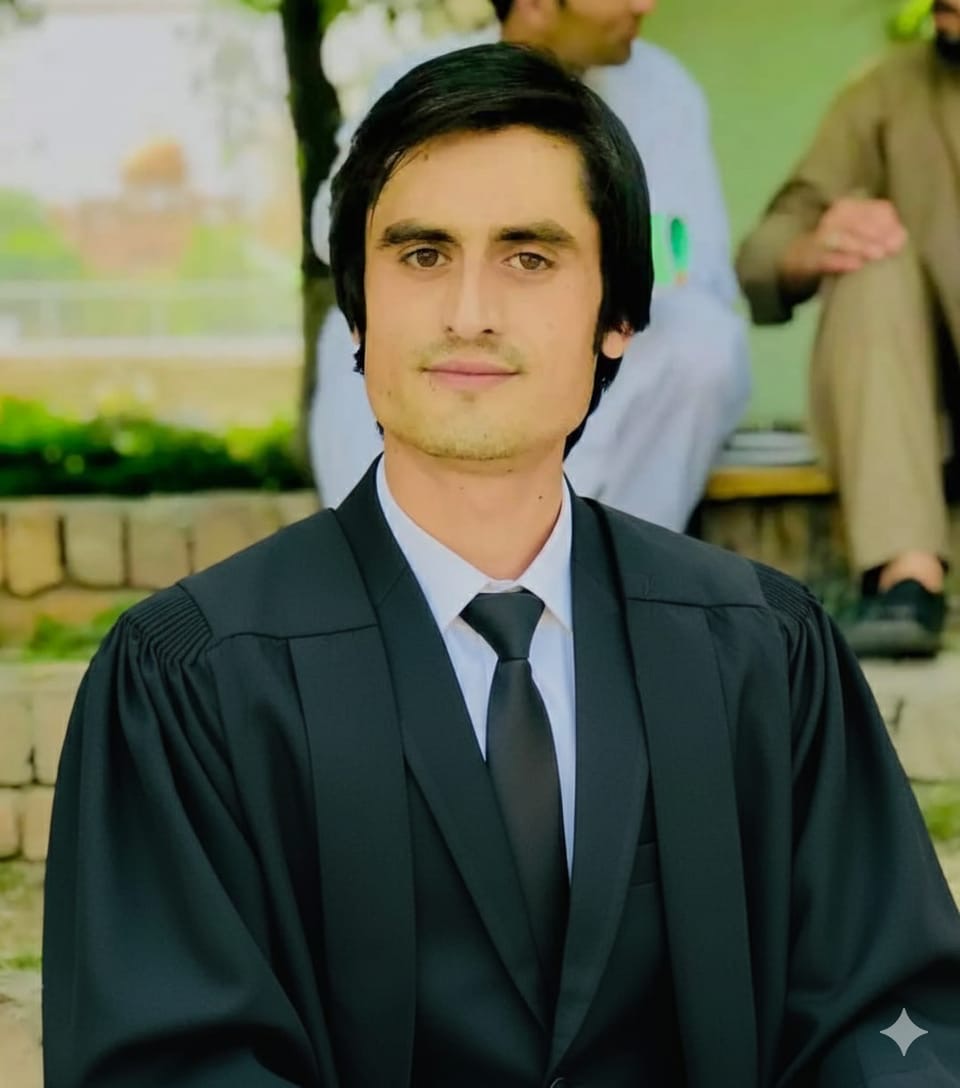Best Media and Entertainment Lawyers in Peshawar
Share your needs with us, get contacted by law firms.
Free. Takes 2 min.
List of the best lawyers in Peshawar, Pakistan
About Media and Entertainment Law in Peshawar, Pakistan
Media and Entertainment law in Peshawar, Pakistan, is an evolving field that intersects with various facets of the media, including television, film, music, and the internet. Peshawar is a vibrant city with a rich cultural heritage, which significantly contributes to its dynamic media and entertainment landscape. The legal framework governing this sector comprises regulations that protect intellectual property rights, ensure compliance with broadcasting standards, and manage contractual relationships in the entertainment industry. Recent advancements in digital media have also introduced new legal challenges, necessitating a nuanced understanding of both traditional and modern media laws.
Why You May Need a Lawyer
Individuals and organizations participating in media and entertainment may require legal assistance in several situations. Common scenarios include negotiating contracts for film production, music rights, and distribution agreements. Legal help is also crucial when dealing with intellectual property issues such as copyright infringement or trademark disputes. Furthermore, navigating the regulatory landscape for broadcasting licenses or dealing with defamation suits in public media platforms can be complex, making legal counsel invaluable. Lawyers specializing in this field are also essential for ensuring compliance with censorship laws and protecting creative works in a digital age.
Local Laws Overview
Key local laws relevant to media and entertainment in Peshawar consist of both federal and provincial regulations. The Copyright Ordinance, 1962, is central to protecting the rights of creators, while the Pakistan Electronic Media Regulatory Authority (PEMRA) oversees broadcasting laws and media content regulation. Laws concerning censorship and freedom of expression, such as the Pakistan Penal Code provisions on defamation, play a significant role in guiding media practices. Additionally, the Khyber Pakhtunkhwa (KP) province has specific statutes and cultural considerations affecting the media landscape, emphasizing the importance of understanding local customs and regulations.
Frequently Asked Questions
What is the role of the Pakistan Electronic Media Regulatory Authority (PEMRA)?
PEMRA is responsible for regulating and licensing electronic media, including TV and radio broadcasting, ensuring adherence to ethical standards, and monitoring content to maintain cultural and societal norms.
How can I protect my creative work from being copied?
Registering your work with the Copyright Office ensures protection under the Copyright Ordinance, which gives you the exclusive right to reproduce, distribute, and display your work. Legal action can be taken in case of infringement.
Do I need a license to produce a film in Peshawar?
Yes, film production requires appropriate permits and licenses from relevant governmental bodies, along with ensuring compliance with local and national film regulation standards.
What should I consider when signing a contract with a talent agency?
Ensure the contract specifies terms relating to compensation, duration, scope of rights, and obligations. It is advisable to have a lawyer review the contract to safeguard your interests.
How does defamation law apply to the media?
Defamation law protects individuals from false and damaging statements. Media professionals must ensure accurate reporting and substantiation to avoid legal repercussions under the Pakistan Penal Code.
Are there specific laws governing digital media and online content?
Yes, the Prevention of Electronic Crimes Act (PECA) addresses online content and cybercrimes, including issues like unauthorized access and distribution of copyrighted material over digital platforms.
What legal issues are associated with music rights in Peshawar?
Music rights management involves copyright protection, licensing for use or performance, and resolving disputes related to royalty distribution among creators and producers.
How can I resolve a contract dispute in the entertainment sector?
Contract disputes can be settled through negotiation, mediation, or arbitration. If these methods fail, litigation may be pursued in a court of law. Legal assistance is crucial in navigating such disputes.
Is there any restriction on the content of advertisements in the media?
Ad content is subject to PEMRA regulations and must adhere to ethical guidelines, ensuring no misleading, offensive, or culturally inappropriate material is broadcasted.
How are artists' rights protected under intellectual property laws?
Artists' rights are primarily protected under the Copyright Ordinance, which allows them to claim ownership and benefits of their creative works. This includes financial compensation and control over the use of their creations.
Additional Resources
For individuals seeking more information, the following resources and governmental bodies may be helpful:
- Pakistan Electronic Media Regulatory Authority (PEMRA): Provides guidelines and licensing information for electronic media.
- Copyright Office, Pakistan: Assists with the registration of creative works to secure legal protection.
- Khyber Pakhtunkhwa Information Department: Offers insights into local media policies and regulations.
- Local Bar Associations: These associations can recommend qualified lawyers specializing in media and entertainment law.
Next Steps
If you need legal assistance in media and entertainment, the following steps can guide you:
- Identify the specific legal issue you are facing and gather relevant documentation.
- Consult with a lawyer experienced in media and entertainment law to evaluate options and receive tailored advice.
- Explore alternative dispute resolution methods, such as mediation or arbitration, to potentially resolve issues amicably.
- If necessary, proceed with formal legal actions, ensuring compliance with all procedural requirements.
- Stay informed about local and national developments in media law to mitigate potential legal issues in the future.
Lawzana helps you find the best lawyers and law firms in Peshawar through a curated and pre-screened list of qualified legal professionals. Our platform offers rankings and detailed profiles of attorneys and law firms, allowing you to compare based on practice areas, including Media and Entertainment, experience, and client feedback.
Each profile includes a description of the firm's areas of practice, client reviews, team members and partners, year of establishment, spoken languages, office locations, contact information, social media presence, and any published articles or resources. Most firms on our platform speak English and are experienced in both local and international legal matters.
Get a quote from top-rated law firms in Peshawar, Pakistan — quickly, securely, and without unnecessary hassle.
Disclaimer:
The information provided on this page is for general informational purposes only and does not constitute legal advice. While we strive to ensure the accuracy and relevance of the content, legal information may change over time, and interpretations of the law can vary. You should always consult with a qualified legal professional for advice specific to your situation.
We disclaim all liability for actions taken or not taken based on the content of this page. If you believe any information is incorrect or outdated, please contact us, and we will review and update it where appropriate.









